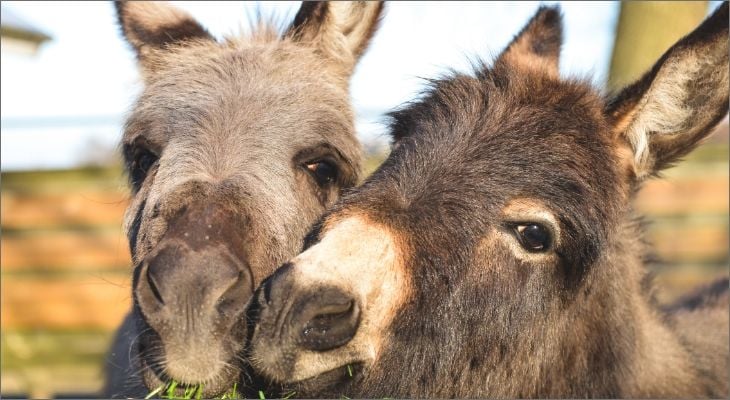
There are many benefits to owning a donkey, horse, or mule. However, it is important to know that these animals (all belonging to the sub-family called equus) require special housing, feeding, and care for a healthy life. Here are a few important considerations to make before bringing a new animal home.
Housing and Sheltering
The size of the animal determines how large of a stall you’ll need to keep it in. For one normal-sized animal, you’ll want something around 12-foot by 12-foot square or larger. Ponies and some miniature horses can be kept in areas as small as 10-foot by 10-foot. And draft horses or other large breeds require up to 16-foot by 16-foot stalls.
You’ll also need some sort of shelter from the elements. This can be a simple three-sided shed with a cover or a stall that is both indoors and outdoors. If you plan on keeping your horse, donkey, or mule in a pasture, make sure they still have some sort of cover from the rain and summer sunshine.
Feeding
In general, most donkeys, horses, or mules eat about twenty pounds of food a day. They also need access to around eight gallons of water. If you’re keeping your horse in a barn, you’ll want to provide them with a clean water trough or automatic water source. Those in a pasture should have access to a much larger trough or tank, due to potential evaporation. Plus, they’ll need plenty of hay and pellets or grain twice a day.
Other Tips to Know About Owning a Horse, Donkey, or Mule
Besides basic food, water, and shelter, these animals have numerous other care requirements. Their hooves grow quickly, so you’ll need to have a local farrier come out and trim or shoe them every six to eight weeks.
Horses, donkeys, and mules also need annual or bi-annual veterinary care and regular vaccinations. Additionally, they need to be protected against parasites and other worms that can cause significant health conditions.
Finally, your new donkey, horse, or mule needs exercise on a regular basis. You won’t always be available for rides, so having a place to roam like a pasture or paddock is important. Groundwork or the so-called act of putting them through their paces through physical activity should be done at least a couple times per week.
Wrap Up: Basic Care
Owning one or all of these animals is exciting. However, you want to ensure you’re giving them the healthiest and happiest lifestyle by keeping these important tips in mind.
